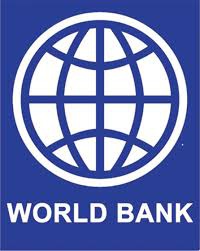 World Bank logo
World Bank logo
A growing number of developing countries are investing in social safety nets to improve the lives and livelihoods of billions of poor and vulnerable people.
This notwithstanding, about 55 per cent of the world's poor or 773 million people with acute needs still lack the safety net coverage - especially in lower-income countries and in urban areas- and countries must take action to close this coverage gap, says a new World Bank Group report.
According to ‘The State of Social Safety Nets 2015’, more than 1.9 billion people in 136 low- and middle-income countries are now on beneficiary rolls of social safety net programs, a statement from the bank and copied to GNA said.
In Africa alone, the number of countries setting up social safety net programs has doubled over the past three years, as evidenced by rigorous evaluations that prove these programmes work.
However, three quarters of the poorest people in low and lower-middle income countries, and more than one-third of the poorest people in middle-income countries, lack safety net coverage and remain at risk.
The report follows the recent joint statement by the heads of the World Bank Group and the International Labour Organisation (ILO), endorsing the goal of universal access to social protection - including safety nets- by 2030.
The Third Financing for Development Conference in Addis Ababa next week is an opportunity to ensure that the international community has the means to make this vision a reality.
"The World Bank Group and the ILO share a vision of social protection for all, a world where anyone who needs social protection can access it at any time," said Jim Yong Kim, World Bank Group President and Guy Ryder, Executive Director, ILO, in their joint statement.
"The new development agenda that is being defined by the world community - the sustainable development goals - provides an unparalleled opportunity for our two institutions to join forces to make universal social protection a reality, for everyone, everywhere."
These programmes include cash and in-kind transfers targeted to poor and vulnerable households, with the goal of protecting families from the impact of economic shocks, natural disasters, and other crises; ensuring that children grow up healthy, well-fed, and could stay in school and learn; empowering women and girls; and creating jobs.